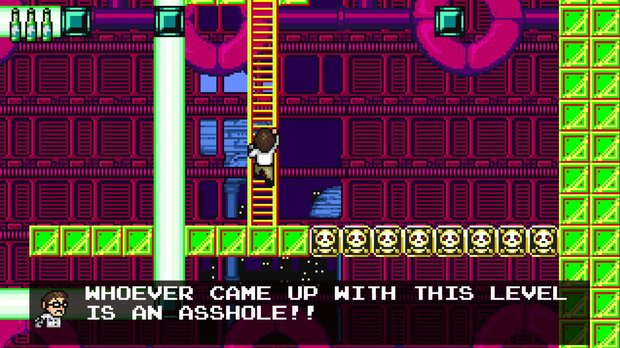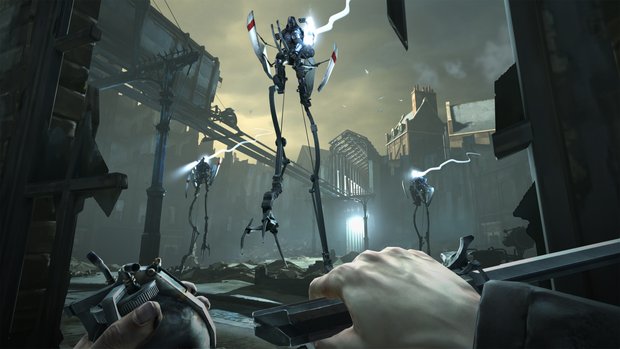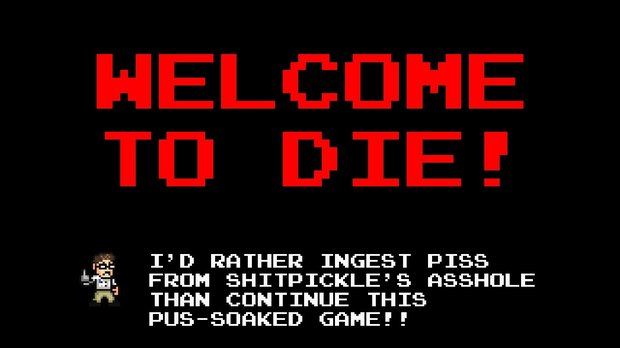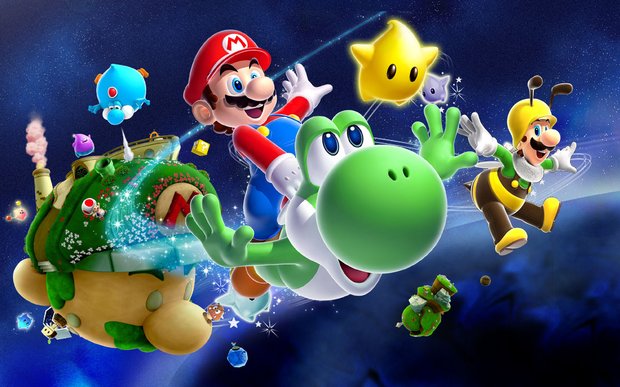When is it okay to walk away from a game?

"Surrender is a perfectly acceptable alternative in extreme circumstances!" That defeatist line was blurted out by the master of human-cyborg relations himself, C-3PO, when he and his cohorts were backed into a corner. And despite his panicked cowardice in that moment, I think the golden droid had a pretty good point. I don't typically think of myself as a quitter; I'll give most any game the benefit of the doubt, whether it's seemingly terrible or notoriously rage-inducing. But as someone with an affinity for difficult games, Threepio's words ring true--particularly when challenge starts to eclipse fun. Then again, is there value to powering through the pain? Is it better to know your limits? And most importantly, when is it okay to walk away from a game?
All these questions raced through my mind while playing Angry Video Game Nerd Adventures, a game I ever-so-nearly finished despite hating it almost every step of the way. AVGN Adventures is designed to frustrate the player, in the hopes that you'll emulate the expletive-filled rants that the titular hero is best known for. The problem is, most of the levels are just as unenjoyable as the NES and Atari games they're mocking, with cheap deaths, sporadic checkpoint placement, and enemies that aren't fun to fight. All these downsides were pretty obvious from the get-go, but some deep-rooted masochistic impulse kept me playing, despite actively loathing every moment of the experience.

There's that old Smith and Dale sketch (thanks Google) that goes like so: Patient says "It hurts when I do this," and the doctor responds "Then don't do that!" If playing a game is too frustrating, stop playing it, right? But giving up--and make no mistake, that's what it is--discounts all the effort you put into getting as far as you did, making it feel like an utter waste. It seems like it'd be better to recognize the fact that you're not enjoying yourself and pull the ripcord as soon as possible, so you can move on to games that keep you engaged and satisfied from the get-go.
However, the tactic of bailing out the moment you stop having fun seems to be inherently flawed. Former editor Tom Magrino recalls that he played Dishonored for an hour, wasn't really feeling it, and stopped playing (presumably for good). That means he'll never know the story twists, new powers, and amazing assassination techniques that only make themselves known later in the game. The way I see it, Tom missed out on my favorite game of 2012; his unwillingness to plow through a somewhat slow start deprived him of a great experience. On the other hand, we're not the same person--so maybe he made the right call, and wouldn't have enjoyed Dishonored the way I did.

And while some gamers adore the challenge of AVGN Adventures, I thought it was a miserable lesson in how not to make a hardcore platformer. With every death, I was forced to stare unamused at a randomly generated insult, the Nerd's disdain for the situation mirroring my own growing hatred. I trudged through level after level, never feeling satisfaction or excitement after any boss kill. Looking back, I don't know why I did it; perhaps I thought that beating AVGN Adventures would give me full authority to snub it, or provide some kind of proof that I was better than the game.
But when it came time to face the final boss--Fred Fucks, of course--I simply couldn't take it anymore. The encounter was everything I hate about bad boss design: relentless screen-filling attacks, no discernible pattern, a limited stock of lives, and the need to play the entire last level again if you fail. After 50 or so attempts, I was done. I'll never play AVGN Adventures again, despite confronting the last challenge on the road of frustrating hurdles that comprise the game.

And strangely, I felt an odd sense of guilt about that fact. I'm usually not one to back down from a video game challenge, and I think of frustration as a fleeting emotion not worth feeling. But when you're not having fun anymore, what's the point? That's why guides are forever popular: people want to get through tough sections as painlessly as possible, so they can get back to enjoying themselves. It's how Game Genie got to be so trendy back in the day (then again, there's little gratification in cheating your way to the end credits).
Sign up to the GamesRadar+ Newsletter
Weekly digests, tales from the communities you love, and more
Until I become the Highlander, there's a limited amount of time I have on this world. And by that measure, pouring two hours of my finite life into the Angry Video Game Nerd Adventures was a waste of that time. But I think the game taught me a valuable lesson: Sometimes, you just need to be at peace with giving up, especially if it spares you additional grief. Upon banishing AVGNA from my hard drive, I hopped to YouTube, where I knew I could find the final cutscene I had been deprived of. And of course, it was a pathetic excuse for an ending--a slideshow revolving around a tired joke, told with recycled stills from the opening movie.

Was there any difference between watching that hideously awful finale after beating the last boss, and simply queuing it up on the Internet? No, I don't think so. Would finishing the game be its own reward? Not likely, because nothing about the experience had been enjoyable up to that point. It recalls a similar experience I had with Super Mario Galaxy 2--which, as a superbly well-made video game, is the polar opposite of AVGNA. After dozens of hours spent running and jumping, I had nabbed every last Green Star, but was incapable of completing the Grandmaster Galaxy. The pains I was taking to beat the last level--the heartbreak of dying to the very last Boomerang Bro on more than one attempt--threatened to erase all the delight and satisfaction I had getting there.
So yes, I watched the super secret grand ultra final ending online, and I don't regret doing so. No, I didn't earn the right to watch it--but in the grand scheme of things, who cares? The problem of a seemingly insurmountable challenge isn't restricted to bad or good games, be it AVGNA or SMG2. And playing either game to full completion simply wasn't worth it to me, regardless of what anyone else thinks. That's OK, because we play games to enjoy ourselves, not to appease others. Giving up is a good thing when soldiering on becomes a torturous ordeal. Had I finally managed to slay Fred Fucks, any feelings of satisfaction would be drowned by a sea of relief that my suffering was finally over. In that regard, quitting and beating the game became one and the same.
Lucas Sullivan is the former US Managing Editor of GamesRadar+. Lucas spent seven years working for GR, starting as an Associate Editor in 2012 before climbing the ranks. He left us in 2019 to pursue a career path on the other side of the fence, joining 2K Games as a Global Content Manager. Lucas doesn't get to write about games like Borderlands and Mafia anymore, but he does get to help make and market them.



